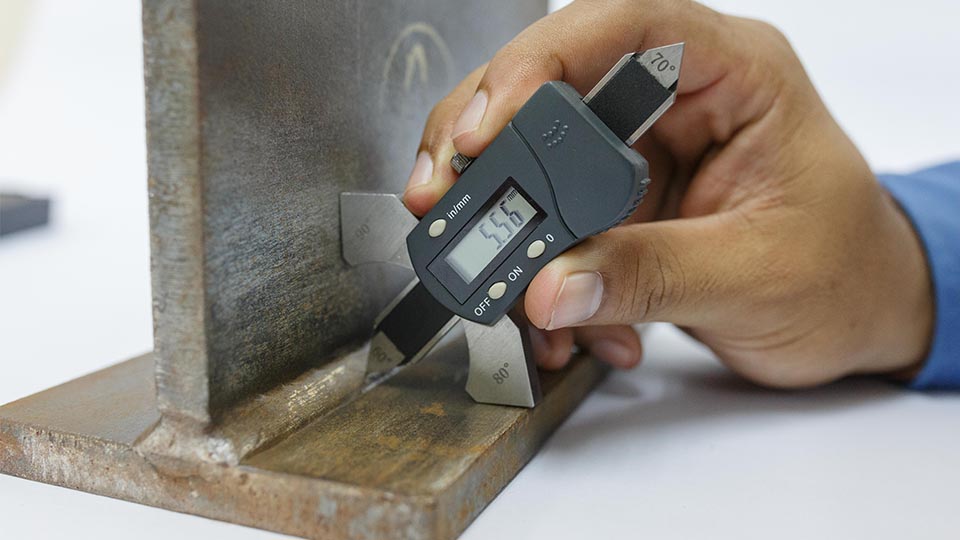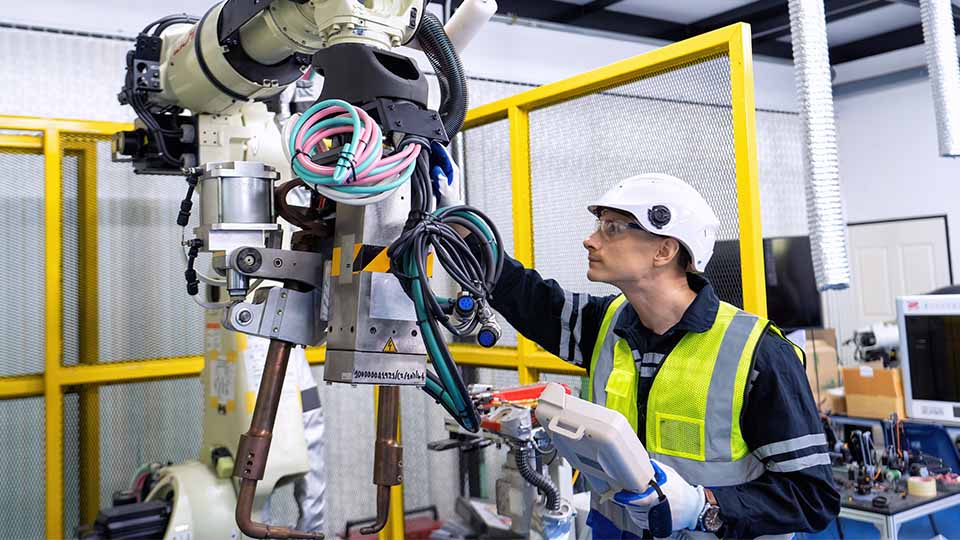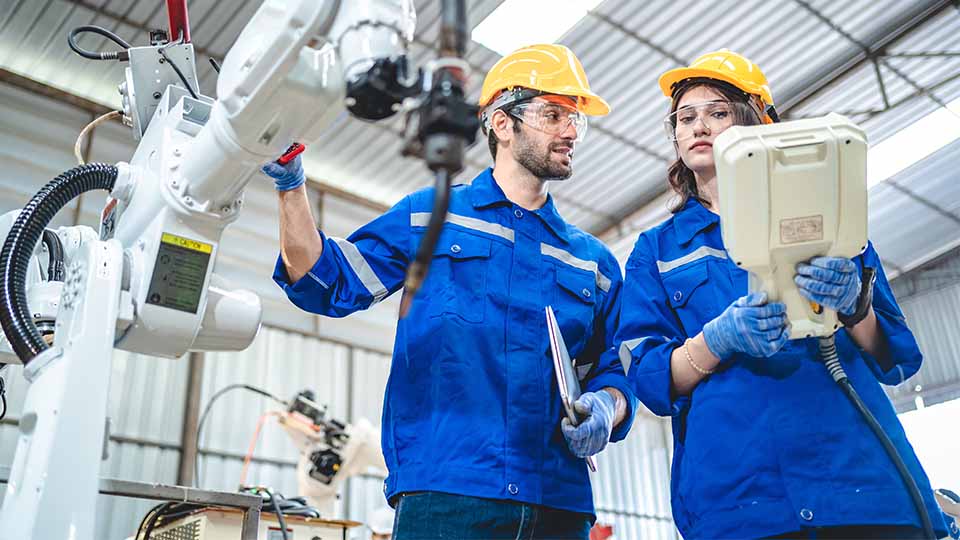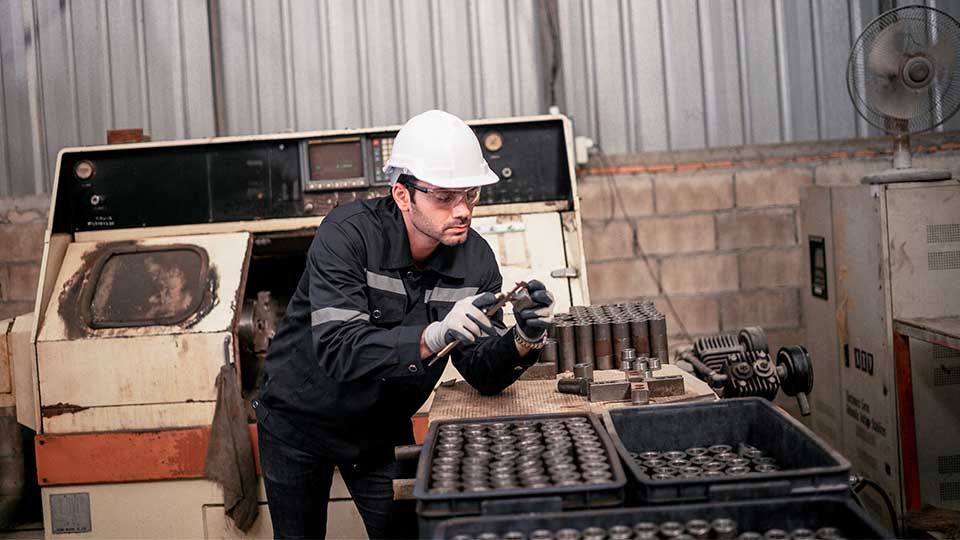Imagine your production line is performing at 100% efficiency, with every process running like clockwork, with no unexpected downtime in your manufacturing process, no quality issues, just pure production efficiency. That is the power of engineering done right. But getting to that point requires more than just good intentions. Often, it takes more than just the technical expertise of your employees; it takes the support of skilled engineering contractors who know how to turn your projects into highly functioning machines.
Whether you’re looking to optimize a single automation system, perform a KIT change on an older automated system, or update a new automation operation, using the right consultant can make all the difference in transforming your equipment into mass production efficiency.
Not sure where to find the best engineering contractors for your job? In this article, I will explain everything you need to know about engineering consulting services, including the process, benefits, and steps on how to find the top engineering consultants in the industry.
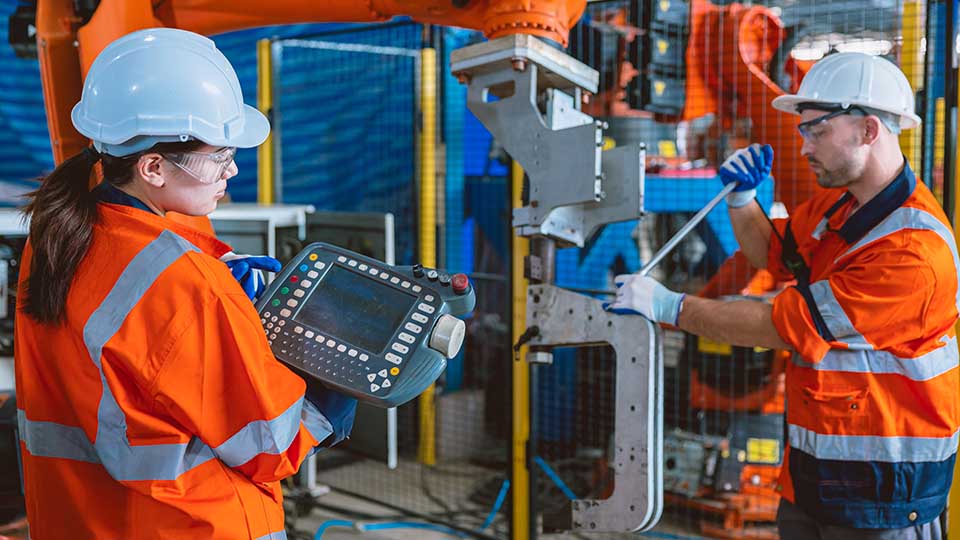
What is engineering consulting?
Engineering consultants are professional engineers who companies hire temporarily to make sure the manufacturing and production systems are as efficient as possible. They can help with concept designs, equipment installing, and supporting production so your teams can focus on working in different areas of need. Here’s a closer look at what they actually do:
Concept And Design:
Industrial automation contractors can help design an engineered system that fits your specific technical needs. They pick out the right automation technologies, whether it’s robotics, sensors, or control systems, and make sure everything will run perfectly with your existing setup or future system requirements.
Installation And Integration:
Once the system design and layout are configured and the equipment arrives, these engineering consultants can start working on installing and integrating the new equipment. They will help with setting up the automated machinery, wiring components together, and programming the programmable logic control (PLC) systems and industrial robots. These consultants can handle the setup to get your system up and running without issues.
Maintenance And Production Support:
After the installation, the consultant will often help support automated systems to keep them in top shape through regular maintenance and troubleshooting during production startup. Depending on the client’s needs, they will come in for routine maintenance check-ups, software updates, cycle time adjustments, and fix any recurring issues to prevent future downtime and keep your production line running smoothly.
Upgrades And Optimization:
As the years go by, your technology will become quickly outdated, and your processes will need a refresh. Consultants can step in to assess your current setup and recommend KIT changes or upgrades that’ll boost your efficiency and productivity. Engineering consultants can work on these optimizations while your staff continues to work uninterrupted with supporting the current production line.
Training And Documentation:
Sometimes, engineering consultants will offer industrial automation training services to their clients so your engineering and maintenance staff knows how to operate and maintain the new automation systems. This can include PLC, robot, maintenance, or service training, that can help your staff take full advantage of the newly installed technology. Oftentimes, they can provide all the necessary documentation or create specialized controlled documents or manuals for your new setup.
Compliance And Safety:
Engineering consultants can work with your Environment Health and Safety (EHS) department to review safety protocols to meet engineering standards and governing safety regulations. This means you’re getting a system that works efficiently, is safe for your employees, and is compliant with legal requirements.
What are engineering consulting services?
Engineering consulting services involve getting expert advice on how to integrate engineered programs into your business efficiently. These consultants start by closely examining your current manual and automated operations to spot areas where new or more advanced engineering could make a difference. Once they’ve identified those opportunities, they’ll recommend the right technologies tailored to the company’s needs and help plan out the integration support so everything works efficiently.
They are also there to support you afterward, whether it’s through training your team or offering ongoing production support. Many times, they can even assist with quality concerns and show your teams how to make the products better.
The top 5 signs you need engineering consultants:
Knowing when to bring in engineering consultants can make a big difference in how well your operations will run. Here are some of my top five signs that it might be time to call in these types of engineering professionals:
- Frequent Downtime: If your production line is constantly coming to a standstill because of equipment issues or other hiccups, it’s probably time to consider a change. Frequent downtime isn’t just frustrating; it can also be pretty costly, both in lost production and the ripple effect it has on the rest of your operation downstream. This is where contract engineers come in. They can work on the systems and solutions to better troubleshoot issues or help with cycle time adjustments. This helps reduce the chances of future breakdowns and cuts down on unexpected downtime in production.
- Inconsistent Product Quality: When it comes to product quality, consistency is the key factor. If you’re noticing that the quality of your products are not always meeting your specifications or industry standards, it might be a sign that you need some help. Engineering consulting services can make a big difference for your company. By standardizing your engineering processes, this ensures that each product meets the same high-quality standards that your customers demand of your products. It takes the guesswork out of production, leading to fewer mistakes and a more reliable output.
- Rising Labor Costs: Labor costs are one of the biggest expenses for any business, and like many things nowadays, they are on the rise, so it might be time to look at automation as a solution to help reduce some costs without having to hire more people. Automating certain job responsibilities from employees can help you cut down on labor costs while still maintaining, or even improving efficiency. Using the right engineering consulting services group, companies can now figure out which parts of the process are best suited for automation, helping the company save money in the long run.
- Slow Production Times: If your company is having trouble keeping up with production demand because your cycle time is too slow, automation could be the answer. Slow production cycle times can lead to missed deadlines and unhappy customers, which no business wants. Consultant engineers can jump in temperately to help speed things up by supporting your processes, which, in turn, allows your teams to focus on their normal daily job activities. This helps companies maintain their current production demand without stressing the team with excessive overtime or projects that are outside their technical competency levels, while keeping companies from overstretching their current resources.
- Complex Operations: As a company grows, business operations naturally get more complex. But with complexity often comes new challenges, like managing all the new moving parts without incurring errors or operational inefficiencies. If you’re starting to feel like your processes are getting too complicated to handle, it might be time to bring in the engineering experts. These contract engineers can simplify your operations by automating those complex tasks, which can reduce the chances of mistakes and make everything run much more effectively.
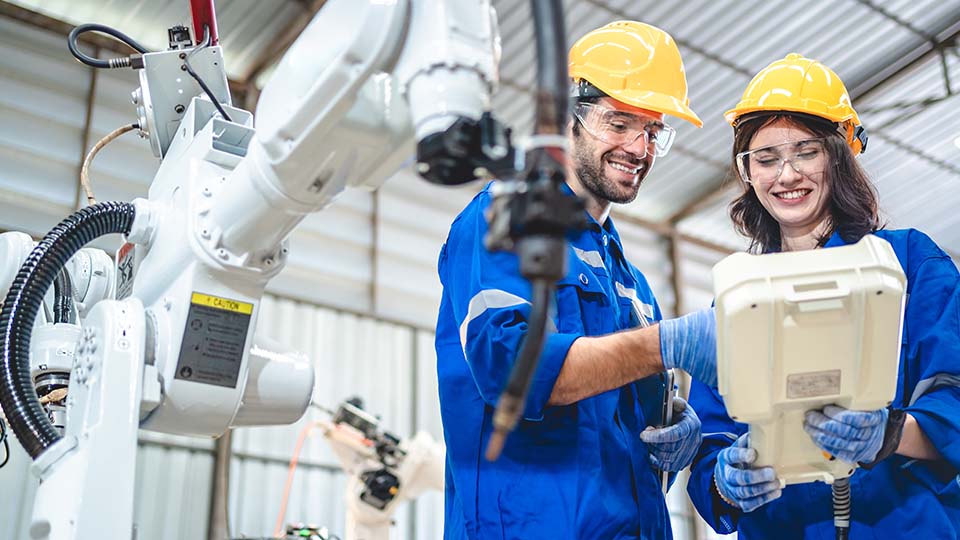
Benefits of engineering consulting services:
Having an engineering consulting expert by your side can help address many of the issues I have highlighted above. Now, I’d like to take a deeper look into the advantages the consultants can offer your business.
Engineering Experience:
When you hire engineering consultants, you’re getting access to a level of expertise and experience that is sometimes hard to match with your internal talent. These consultants know the ins and outs of different engineering fields, and they have seen many challenges their clients employees have not seen before. Instead of trying to navigate this complex field on your own, you can lean on their knowledge to support implementing systems that fit perfectly with your existing operations.
Time And Cost Savings:
While there’s an upfront cost to bringing in an engineering consultant, the time and money you save in the long run often make this investment well worth the price. With innovative solutions, you can reduce the need for more manual labor, cut down on failure rates, and make your operations much more efficient, which adds up to significant savings.
Plus, with an engineering professional handling the installation or integration, production support, or maintenance services, you avoid the failures that some industrial automation companies make by trying to do it themselves.
Another huge advantage of hiring contract staffing services is the cost savings compared to bringing on a full-time employee for the same type of job description. You’re not just paying a salary when you hire a full-time engineer. You’re also covering benefits, training, and other overhead costs. That can add up quickly, especially if a company is an integrator that needs support only on a project-by-project basis or with projects that fluctuate over a limited time frame.
With engineering consultants, you only pay for the contractors you need when you need them. There’s no long-term commitment, no benefits package, and no ongoing payroll costs once the project is completed.
Customized Labor Solutions:
Every business has its own unique set of engineering challenges and company goals, and that’s where a good engineering contractor can help make a big difference. They take the time to understand what you need and then help with solutions that are tailored specifically to your manufacturing operations.
This means you’re not stuck with a generic, one-size-fits-all engineer(s) who don’t have technical experience in what your company needs. Instead, you get a customized contracting talent that works exactly the way you want.
Production Support And Maintenance:
One of the great things about working with a consultant is that they don’t just install the system and leave. If a company wants, the industrial consultant can be there as long as the client requests support. By continuing to offer ongoing production or maintenance support, they can make sure to keep everything running smoothly until the client’s engineers or technicians are comfortable using the newly programmed equipment.
Increased Efficiency And Productivity:
Most businesses look into automation mainly to boost efficiency and productivity, and that’s exactly what you get with an experienced engineering contractor. By automating and streamlining current or new processes, manufacturing companies can get more done in less time with fewer faults on the assembly line. This helps meet current demand and gives any company a competitive edge, allowing them to take on more work without stretching their resources too thin.
Safety:
Learning the safety standards and requirements are the most important task in any industrial setting, and engineering consultants take these concerns seriously. They can make sure your automated systems meet all the necessary safety standards and regulatory requirements, which helps you avoid potential accidents or life-threatening injuries while using the machines.
How to find the right engineering consultants?
Finding the best engineering contractors can feel like a big task, but with a few simple steps that I list below, you can make sure you’re choosing an engineer who is a great fit for your specific engineering project:
1. Start With Research:
Begin by doing some investigative research on the engineering services provider or look into the independent contract engineers background via social media or on their website. Look for a company that provides consultants who have a strong reputation and plenty of experience in your industry. Read Google reviews and check out a consultants work portfolio to get a better idea of their past work experience, technical know-how, and how happy their previous clients have been with their work.
2. Check References:
Don’t just rely on online information and ask for references. Talking to other businesses that have worked with the consultant who can give you valuable insights into how skilled they are, the quality of their work, how well they work with others, and how they handle high-stress situations.
3. Evaluate Their Engineering Expertise:
It’s important to ensure the consultant has specific experience with the type of engineering you need. If your project involves a particular process, you’ll want someone who’s done similar work before and knows the best way to get it done.
A good practice is to create a detailed job description that contains all the requirements you’re looking for. For example, you’re not just looking for someone who can optimize your equipment but also a professional with exceptional technical, communication, and project management skills.
4. Conduct An Interview:
Once you have found a couple of engineering consultants who fit your project requirements, ask to meet either virtually or face-to-face. The contractor should be willing to discuss past project details with your technical team to establish their credibility. Use this time to ask tough engineering-related questions.
During the interview, make sure to establish a clear project plan, including timelines, and the scope of work. Don’t just focus on the price of the contractor, but look at the value they can offer and how well they understand your project needs.
5. Consider Long-Term Support:
Engineering projects are not a set-it-and-forget type of job. Most companies will need long-term production support. Choose an engineering consultant who is available to offer their services on a long-term basis so they do not set up the machines and leave without proper hand-offs and training.
6. Look Into Engineering Platforms:
Another great way to find the right engineering consultants is by exploring engineering services platforms. These platforms connect businesses with skilled engineering consultants who specialize in various aspects of engineering.
For instance, JOINER Services is a well-regarded platform that connects companies with engineering professionals with the exact experience they are looking for. All you have to do is join their platform for free, and start browsing through contractor profiles to find the right engineering consultant!

Find engineering consulting services with JOINER Services.
Investing in added labor support can feel like a big step, but with the right consultant supporting your project, it can be an incredible move for your business. Whether you’re looking to increase productivity in a specific engineered process or overhaul your entire engineering operation, partnering with an experienced contractor helps ensure that everything is done with precision and care.
But it’s not just about getting the job done. You have to do it right! The right engineering consultant brings more than just their technical expertise, they bring a commitment to quality to make sure your automated systems are not only efficient but also safe and compliant.
Where can you find the perfect consultant for the job?
Check out JOINER Services, a platform beaming with experienced technicians, controls engineers, robot programmers, and expert engineering consultants. Using JOINER Services, you’re not just finding a consultant. You’re connecting with experts who are perfectly aligned with your project’s specific engineering needs.

Join today and start browsing through their list of top industry professionals who can help bring your engineered vision to life!
Frequently Asked Questions:
Below, I discuss some FAQs about engineering consulting services.


